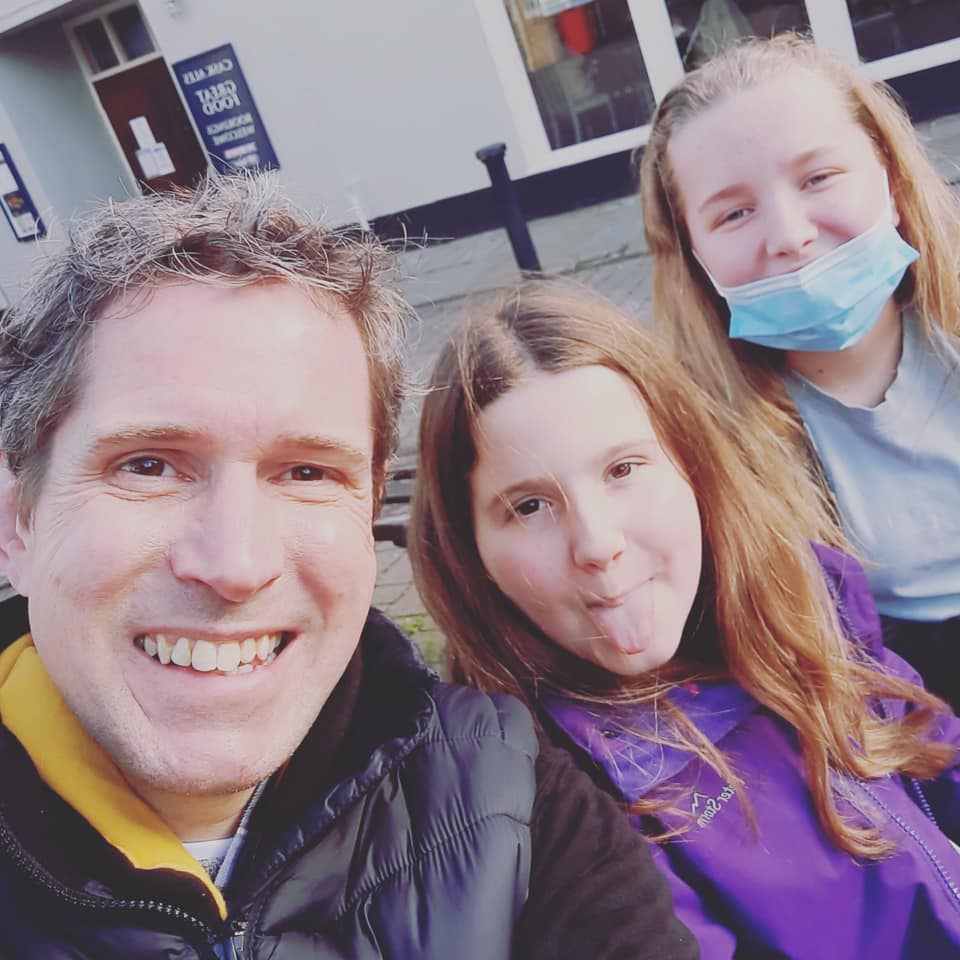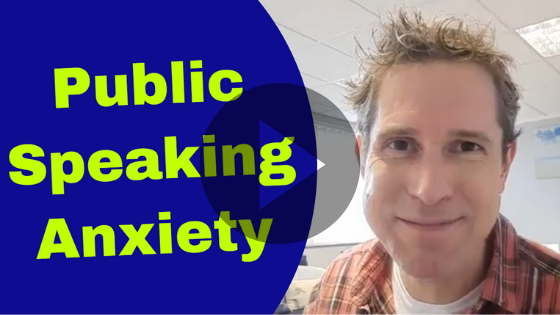Required
Public Speaking Anxiety
Public Speaking Anxiety – Hypnotherapy in Ely and Newmarket
The clocks just went back recently, and while the season is changing to Autumn with all the wonderful shades of brown on the trees, one thing that doesn’t seem to change is the prolificacy of public speaking anxiety. It’s often considered to be one of the most common fears that people struggle with, and there have even been surveys in the past suggesting people are more scared of speaking in front of others than of dying.
Recently I’ve been working with quite a few people who have a fear of public speaking. That anxiety may be linked to formal presentations (these days as often over Zoom as face to face) or speaking up, reporting, updating or asking/answering questions in meetings.
That anxiety can lead to all sorts of anxious thoughts in the lead up to speaking, along with that pit of the stomach nervous feeling and you may find that the thought of the presentation or meeting comes to mind more and more as the date gets closer. There are then all the anxious sensations on the day, in the build up and when speaking, and you may have a tendency to be overly self critical afterwards about how you did (sometimes even going over and over perceived mistakes or errors).
As I often point out to people, this isn’t about whether you can talk, or about whether you can speak to people. Everyone does that with friends or family or in some other situations where they feel relaxed and comfortable. Yet certain perceptions, expectations, thoughts, feelings and beliefs start to creep in about speaking in other situations or environments that lead to you struggling with that anxiety all the way through until your ‘ordeal’ is over.
I was out and about in the Autumn sun in Ely yesterday with my girls. In these days where video is a way of life, through video calls, You Tube, Tik Tok and so on, I do wonder whether their generation will start to become more and more comfortable speaking in public. (Incidentally, I did my first ‘Tik Tok’ yesterday which my daughter has shared with her friends as an example of what not to do…which was cheeky cause they were some of my finest dance moves!)
Public Speaking Anxiety
I’ve written before about research about public speaking anxiety (read more here: Research Says Knowing This Will Reduce Your Public Speaking Anxiety). This is one of those areas where our thinking is unhelpfully distorted and biased.
When you feel a strong emotion like anxiety, you feel it so strongly and you are so aware of it that you assume other people can pick up on how you are feeling. Yet all the research shows that we have a tendency to overestimate the extent to which other people can tell how we feel. Your anxiety is not as apparent to others as you may have first thought.
And so with public speaking anxiety, you worry about looking anxious when you speak and incorrectly assume that, because you feel your anxiety so strongly, other people must be able to pick up on it (often referred to as the illusion of transparency because we overestimate how obvious our inner thoughts and feelings are to others).
This is true in all aspects of life and even holds true in public speaking when other people are paying attention to you. You worry that the others can tell that you feel anxious (e.g. your hands are shaking a bit) and that leads to even more worrying about them noticing, and so you feel more anxious and then become more convinced they will be able to tell you are anxious. This cycle of anxiety just builds more and more of those unwanted physical sensations and thoughts, even though psychology and evidence tell us it is misplaced.
You can read more about how our brains get it wrong here:
Can Other People Tell How You Feel? Anxiety About Looking Anxious
Can Other People Tell If You Are Feeling Anxious?
As well as the ‘illusion of transparency’ there is also another psychological cognitive bias at play in public speaking. This is known as the ‘spotlight effect’ whereby you overestimate the extent to which your actions and external appearance are noted by other people.
We all overestimate the extent to which our actions and appearance stand out in the eyes of others, both positively and negatively. Whilst we all know that other people don’t have as much focus on us as we have on ourselves, we still overestimate the extent to which others are attentive to our actions and appearance. That (misplaced and exaggerated) worry about what others think, the fear of failure and the fear of being judged can lead to not taking opportunities and limiting ourselves.
You can read more about this here: Why You Should Probably Worry Less About What Other People Think About You – The Research on Fear of Failure and Being Judged).
Allowing for the fact that other people are not paying as much attention to your actions and appearance as our thinking suggests, and even allowing for the fact that we overestimate how much other people can tell how we are feeling and what we are thinking (meaning that even if you had a bit of anxiety when public speaking, others are not that good at picking up on our emotions), there is another thing to keep in mind too.
Research also evidences that you will also be overestimating the extent to which others judge you harshly even if you do make an embarrassing blunder or mishap. That is, even if you went blank, got flustered, made a mistake or any of those other disasters that public speaking anxiety has you worrying about, other people tend to be nicer, kinder and more empathetic than you had been expecting.
If you think about it, this makes sense because I’m sure if you saw someone struggle or ‘mess up’ when speaking, you’d be kind and supportive too, and you’d keep that sense of perspective that means you know that it was just one mishap, that it could happen to anyone and that no one got hurt from it.
You can read more about this here: Do Others Judge You As Harshly As You Think When You Mess Up? Anxiety & Fear of Failure
And so all of this research just goes to show that in many areas of life, and perhaps particularly in our beliefs and perceptions around public speaking, our brains can’t help but get it wrong and lead our thoughts and feelings down the wrong path (unless we know they are doing that and so can reappraise our thoughts and feelings).
Other people are not giving that much notice to how you look, speak and behave. If you are a bit anxious, other people aren’t as good as you think at even noticing. And even if it all goes wrong somehow, people don’t judge you as harshly as you expect at all.
Public Speaking Anxiety: One More Thing To Remember
When it comes to public speaking anxiety, one thing I’ve certainly noticed from helping so many people with this, is how unreasonable expectations start to creep in.
In the midst of those anxious thoughts and feelings, you start to expect yourself to go through it word perfectly and without ever pausing, repeating or even the occasional stutter or mispronunciation of a word here and there. In short, you can start to set your own bar at a level of say a newsreader reading from an auto cue, or an actor who has learnt and repeated lines over and over.
Yet none of us talk this way in day to day life. If you start to pay attention to how you talk to others you feel comfortable around, and how others talk to you (whether one to one or in a group), you’ll quickly notice that people stutter, repeat themselves, umm and ah, go blank, lose their thread for a moment and so on. And guess what? No one’s really bothered, it’s just a part of how we all communicate and interact. It’s just one of those ordinary day to day things (in fact, we all expect a bit of it to happen in our conversations). You don’t go through your day perfectly pronouncing grammatically correct full sentences from an auto cue when you or others talk.
All of this means that if you do repeat yourself, stumble over a word, have to re-explain something, lose track a little for a moment, need to check your notes, pause or stop and think, um and ah or stutter a bit, no one really cares. Of course, you care and you can start to get flustered and anxious thinking others care, but really they aren’t that bothered. A talk or presentation is really just a one sided conversation that you want to put across naturally, so a few very slight hiccups along the way adds to that and can even make what you are saying, and how you are saying it, more real and relatable to your audience.
So relax about it. If no one else cares apart from you, then you don’t really need to care either. It’s just a natural part of how we communicate each and every day.
Even outside of all of this, anxiety makes your thoughts and feelings inaccurate. How often have you worried about some worst case scenario only for it to not materialise? How often have you dreaded something, only to find that it wasn’t as bad as you feared?
Anxious thoughts and feelings are often just plain wrong (which is why I help people to take back control over their thoughts and feelings and overcome unnecessary anxiety).
In addition, all of those cognitive biases mean that worries about fear of failure, being judged negatively, people paying a lot of attention to how you look, speak or behave, or even people being aware of your internal thoughts and feelings, are also wide of the mark.
And learning to calm your anxious feelings around public speaking, to deal with those unwanted thoughts and to reign in those things that science tells us your brain is exaggerating, means you can relax more, feel more comfortable, think more clearly and then go through your presentation or speech in a much more positive way.
To your success,
Dan Regan
Hypnotherapy in Ely & Newmarket
Do you need help to deal with your public speaking anxiety, dread and worry> Take that first step to feeling better and book your Complimentary Hypnotherapy Strategy Session with Dan now: Appointments
Find out what scores of other people have said after their hypnotherapy sessions with Dan: Hypnotherapy Testimonials
And check out these powerful hypnosis downloads that can start helping you feel better right now: Hypnosis Downloads
Get Your Copy Right Now…
Subscribe to Dan’s Digest filled with tips, strategies and techniques and get instant access to your free rapid relaxation hypnosis audio track.
Enjoy feeling and being more mentally calm and physically relaxed right now:






0 Comments